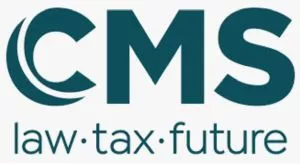- within Privacy and Wealth Management topic(s)
- with readers working within the Banking & Credit industries
Background
On 24 March 2023, the Luxembourg government put forward the bill
of law 8183 (the Bill) which comprises significant
amendments to four Luxembourg product laws, namely the law of 23
July 2016 on reserved alternative investment funds, as amended (the
RAIF Law), the law of 13 February 2007 on
specialised investment funds, as amended (the SIF
Law), the law of 15 June 2004 on investment companies in
risk capital, as amended (the SICAR Law), and the
law of 17 December 2010 on undertakings for collective investment,
as amended (the UCI Law, and together with the
RAIF Law, the SIF Law and the SICAR Law, the Product
Laws), as well as the Luxembourg law of 12 July 2013 on
alternative investment fund managers, as amended (the AIFM
Law).
The objective of the Bill is to improve and modernise the
Luxembourg toolbox for investment funds, and therefore to increase
the attractiveness and competitiveness of the Luxembourg financial
centre. Key changes to the Product Laws are made in the context of
the retailisation of private funds and should be read together with
the recent adoption of the ELTIF 2.0 – Regulation (EU)
2023/606 amending Regulation (EU) 2015/760 on European long-term
investment funds (ELTIF) – which shall apply
as from 10 January 2024 (please refer to our dedicated page on this topic).
This publication highlights the most important changes to the
Product Laws and the AIFM Law.
Key changes
Changes to the Product Laws
Amendment of the definition of "well-informed investor"
The definition of "well-informed investor" will be amended in the SICAR Law, the SIF Law and the RAIF Law to specify that with respect to investors who are not professional investors and elect to be treated as well-informed investors, the minimum investment threshold of EUR 125,000 will be lowered to EUR 100,000 to facilitate the raising of capital from non-professional investors and to harmonise the Luxembourg market with European standards in this context. It should also be noted that the definition of "well-informed investor" will be harmonised throughout the Product Laws to reflect the definition set out in the RAIF Law.
Extension of the timeframe to reach the minimum amount of assets under management
The current minimum capitalisation threshold for SIFs, RAIFs and Part II funds is EUR 1,250,000, to be reached within (i) 12 months from the relevant authorisation/establishment for a SIF and a RAIF and (ii) 6 months from the relevant authorisation for a Part II fund. The Bill suggests a longer timeframe of (i) 24 months (instead of 12 months) for SIFs and RAIFs and (ii) 12 months (instead of 6 months) for Part II funds.
The SICAR Law currently includes a minimum threshold of EUR 1,000,000 to be reached within 12 months from the SICAR's authorisation. The Bill suggests a longer timeframe of 24 months.
Enhanced rules on withdrawal of depositary
With respect to SICARs, SIFs and Part II funds, the replacement of the depositary will no longer need to occur within 2 months after the termination of the contract. Instead, the Bill clarifies that the depositary agreement should provide a notice period allowing sufficient time for the depositary to be replaced and, if a new depositary is not appointed by the end of this notice period, the Commission de Surveillance du Secteur Financier (CSSF) will proceed with the removal of the SICAR, SIF or Part II fund from the relevant official list.
The Bill also introduces the prohibition for the relevant funds to issue or redeem shares or securities (i) during the period for which the SICAR/RAIF/SIF/Part II does not have a depositary, or (ii) in case of liquidation, declaration of bankruptcy or application for an arrangement with creditors, suspension of payments or management supervision or a similar measure in respect of the depositary.
New subscription tax exemption for ELTIFs and PEPPs
The Bill provides for an exemption for the SIFs, RAIFs and Part II funds from the subscription tax if they are structured as an ELTIF or as a pan-European Personal Pension Product (so-called PEPP).
Notary's acknowledgment no longer required for RAIFs established by notarial deed
The RAIF Law currently prescribes, under its Article 34, that a notary shall acknowledge (constater) that a RAIF has been established and that an alternative investment fund manager (AIFM) has been duly appointed within five days from its establishment. The Bill provides for the removal of such requirement for RAIFs that are incorporated by notarial deed, therefore putting an end to the need for two separate notarial deeds – i.e. one to incorporate the RAIF and one for the acknowledgment.
Changes to the AIFM Law
Marketing to retails investors
The Bill clarifies that both SICARs and SIFs may be marketed to retail investors as long as these qualify as well-informed investors respectively under the SICAR Law or the SIF Law.
New rules on tied agents
The Bill introduces the possibility for AIFMs to appoint tied agents, in a similar way as already set out in the UCI Law with respect to management companies of undertakings for collective investment in transferrable securities. Where an AIFM appoints a tied agent, the AIFM will be subject to the same obligations as credit institutions and investment firms appointing a tied agent in accordance with Article 37-8 of the law of 5 April 1993 on the financial sector, as amended.
Clarifications on the liquidation of AIFMs
The Bill extends to AIFMs the non-judicial liquidation regime that currently applies to collective investment schemes regulated under the UCI Law and reforms the supervisory commissioner regime in case of removal from the official list by the CSSF of an entity supervised by it.2.3.
Changes to the UCI Law:
New legal forms available for Part II funds
In line with the current regimes of the SIF Law and RAIF Law, Part II Funds structured as SICAV will be able to take the form of a common limited partnership (société en commandité simple – SCS), a private limited liability company (société à responsabilité limitée – Sàrl), a special limited partnership (société en commandité spéciale – SCSp), or a corporate partnership limited by shares (société en commandite par actions – SCA) whereas the current regime provides that such funds should be incorporated as a public limited liability company (société anonyme – SA).
New issuance rules for Part II funds
The Bill clarifies that Part II funds which are closed-ended may determine in their constitutive documents the modalities and rules of issuance of their shares/interests which could for instance foresee an issuance which is not based on the net asset value (NAV).
What's next
The Bill is expected to go through the usual Luxembourg legislative process and is hence still subject to changes. A formal approval can hopefully be expected before the summer break.
Considering the increased interest for private fund managers to raise capital from non-professional investors, particular attention should be given to this latest trend in the Luxembourg fund's industry, and the interaction between the Bill and the recent adoption of the ELTIF 2.0 as well as the upcoming reform of the AIFMD should be monitored.
The content of this article is intended to provide a general guide to the subject matter. Specialist advice should be sought about your specific circumstances.




